Inna W. Lin
Human-AI Collaboration Enables More Empathic Conversations in Text-based Peer-to-Peer Mental Health Support
Mar 28, 2022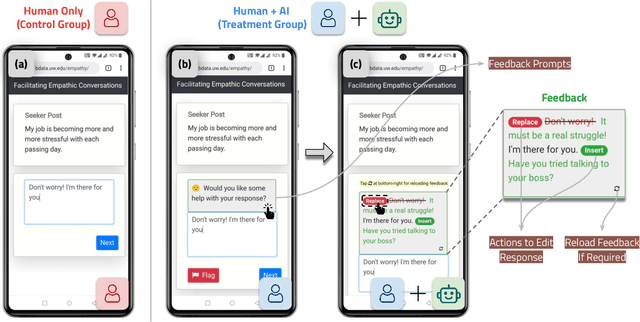
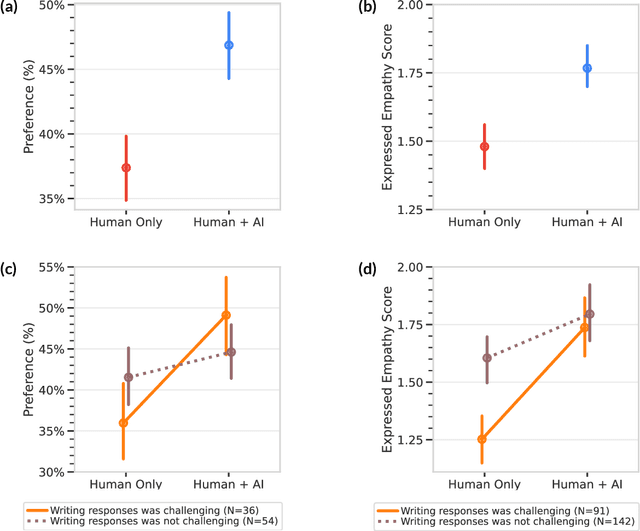
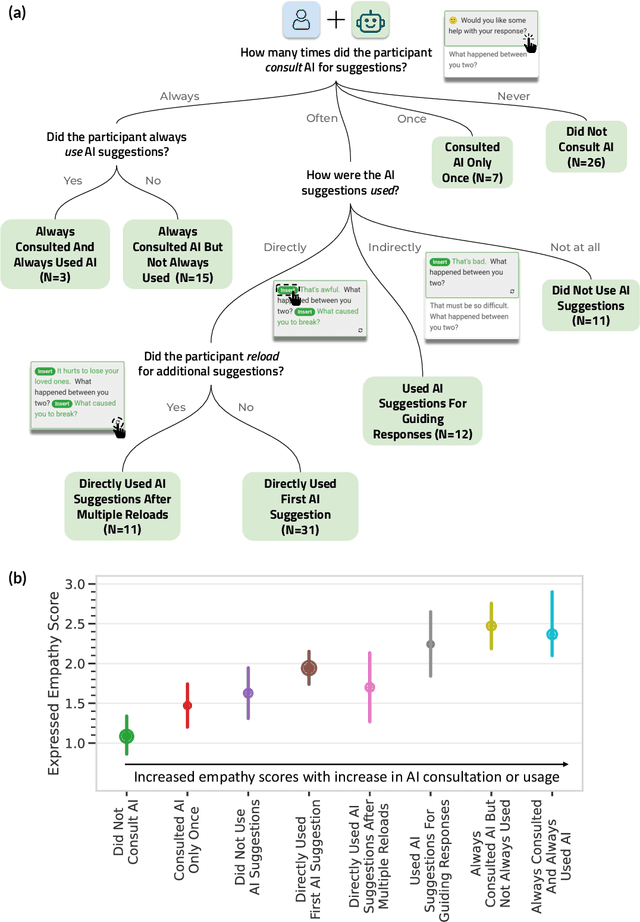
Abstract:Advances in artificial intelligence (AI) are enabling systems that augment and collaborate with humans to perform simple, mechanistic tasks like scheduling meetings and grammar-checking text. However, such Human-AI collaboration poses challenges for more complex, creative tasks, such as carrying out empathic conversations, due to difficulties of AI systems in understanding complex human emotions and the open-ended nature of these tasks. Here, we focus on peer-to-peer mental health support, a setting in which empathy is critical for success, and examine how AI can collaborate with humans to facilitate peer empathy during textual, online supportive conversations. We develop Hailey, an AI-in-the-loop agent that provides just-in-time feedback to help participants who provide support (peer supporters) respond more empathically to those seeking help (support seekers). We evaluate Hailey in a non-clinical randomized controlled trial with real-world peer supporters on TalkLife (N=300), a large online peer-to-peer support platform. We show that our Human-AI collaboration approach leads to a 19.60% increase in conversational empathy between peers overall. Furthermore, we find a larger 38.88% increase in empathy within the subsample of peer supporters who self-identify as experiencing difficulty providing support. We systematically analyze the Human-AI collaboration patterns and find that peer supporters are able to use the AI feedback both directly and indirectly without becoming overly reliant on AI while reporting improved self-efficacy post-feedback. Our findings demonstrate the potential of feedback-driven, AI-in-the-loop writing systems to empower humans in open-ended, social, creative tasks such as empathic conversations.
Towards Facilitating Empathic Conversations in Online Mental Health Support: A Reinforcement Learning Approach
Jan 19, 2021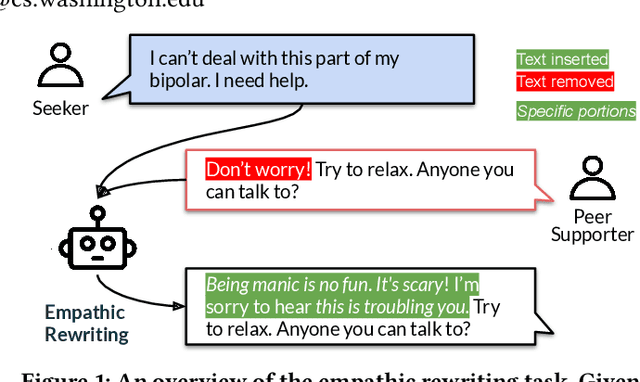
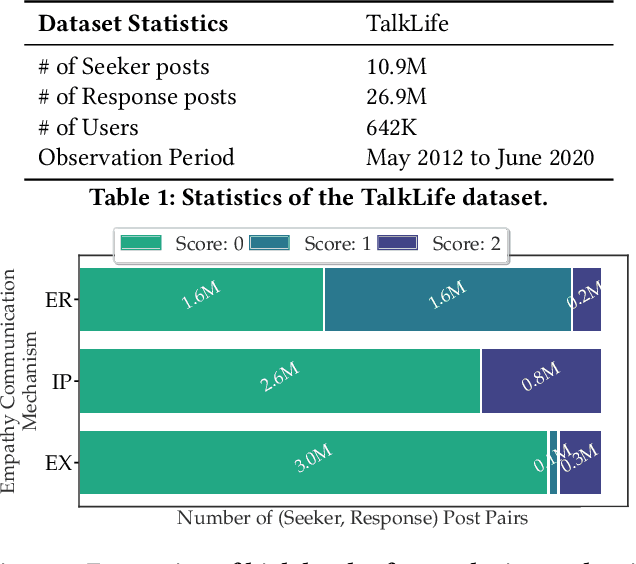

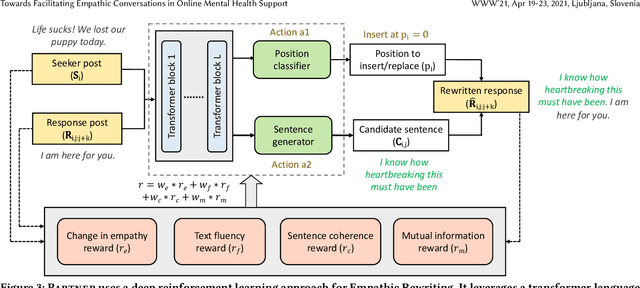
Abstract:Online peer-to-peer support platforms enable conversations between millions of people who seek and provide mental health support. If successful, web-based mental health conversations could improve access to treatment and reduce the global disease burden. Psychologists have repeatedly demonstrated that empathy, the ability to understand and feel the emotions and experiences of others, is a key component leading to positive outcomes in supportive conversations. However, recent studies have shown that highly empathic conversations are rare in online mental health platforms. In this paper, we work towards improving empathy in online mental health support conversations. We introduce a new task of empathic rewriting which aims to transform low-empathy conversational posts to higher empathy. Learning such transformations is challenging and requires a deep understanding of empathy while maintaining conversation quality through text fluency and specificity to the conversational context. Here we propose PARTNER, a deep reinforcement learning agent that learns to make sentence-level edits to posts in order to increase the expressed level of empathy while maintaining conversation quality. Our RL agent leverages a policy network, based on a transformer language model adapted from GPT-2, which performs the dual task of generating candidate empathic sentences and adding those sentences at appropriate positions. During training, we reward transformations that increase empathy in posts while maintaining text fluency, context specificity and diversity. Through a combination of automatic and human evaluation, we demonstrate that PARTNER successfully generates more empathic, specific, and diverse responses and outperforms NLP methods from related tasks like style transfer and empathic dialogue generation. Our work has direct implications for facilitating empathic conversations on web-based platforms.
 Add to Chrome
Add to Chrome Add to Firefox
Add to Firefox Add to Edge
Add to Edge